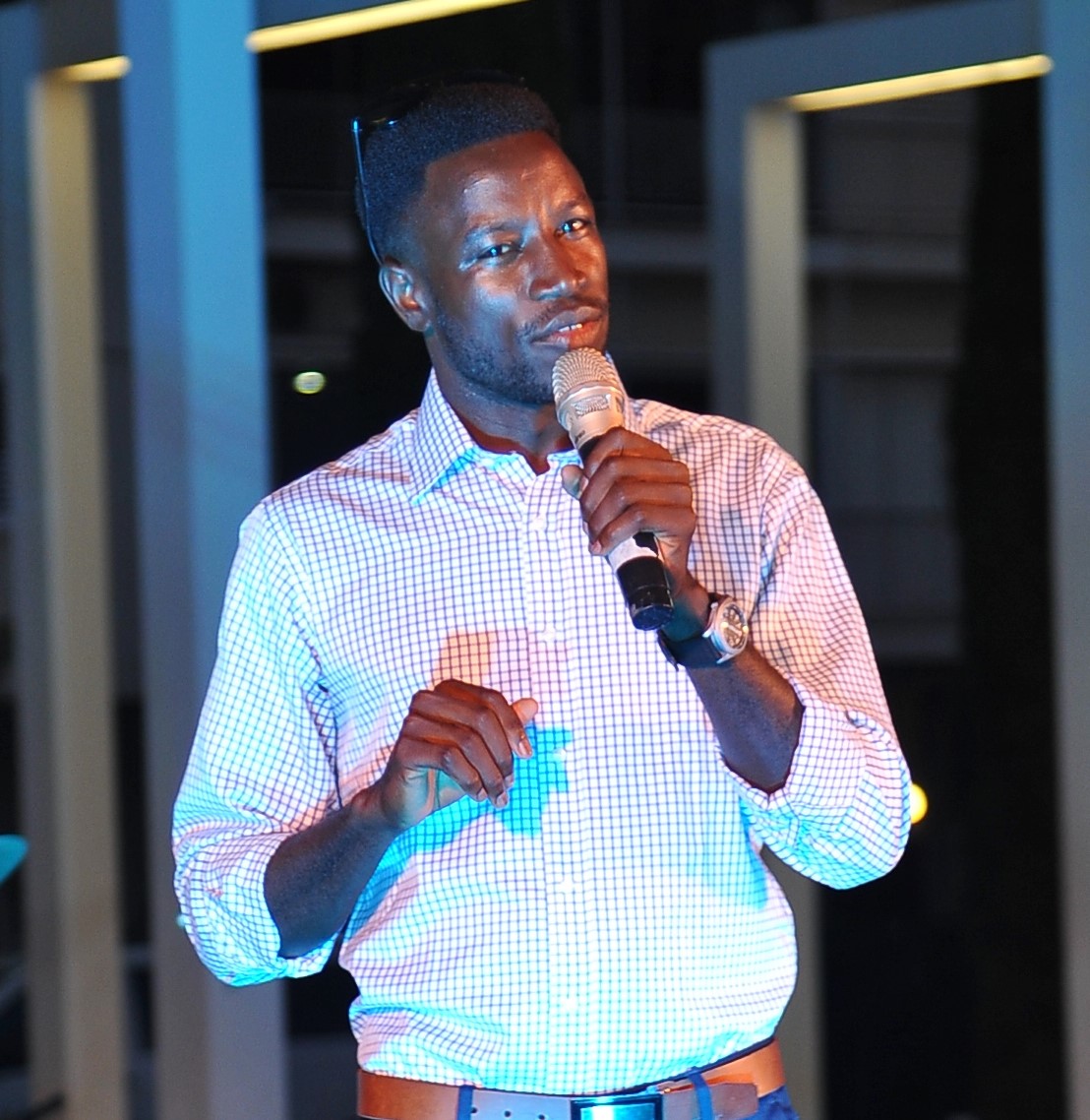Usumain has started two enterprises to uplift Sudanese asylum seekers in Israel. Next, he wants to use his Master’s in Public Policy to strengthen Israel-Sudan social, economic, and cultural relations.

Usumain Baraka delivers a statement at a UNHCR Israel event marking World Refugee Day 2019. / © UNHCR Israel
Born in Darfur, Usumain Baraka came to Israel in 2008 as an unaccompanied 13-year-old fleeing a war that took an estimated 450,000 lives.
Now, with over half his life rooted in Israel, Usumain views himself as a ‘cultural bridge’ between Israel and Sudan. He aspires to become a diplomat who improves opportunities for Sudanese asylum seekers in Israel while helping develop Israel-Sudan relations. His career is already off to an impressive start.
A graduate of Yemin Orde Youth Village near Haifa, Usumain volunteered in the National Service, tutoring students in topics including history and religion (Tanach) for the bagrut, Israel’s high school matriculation exam. After completing his service, he was awarded the African Refugee Scholarship, enabling him to earn a Bachelor’s Degree in Government and Diplomacy Relations and a Master’s in Public Policy from Israel’s Interdisciplinary Center Herzliya (IDC). During his studies, he interned at IDC’s International Criminal and Humanitarian Law Clinic and was accepted to the Rabin Leadership Program. His work and studies took place entirely in Hebrew, which is just one of the five languages Usumain speaks.
Young refugees and asylum-seekers worldwide often do not have the opportunity to attend university; Usumain is the exception to the norm. Even if they meet all academic prerequisites, they face many other barriers: cost, language, lack of documentation, non-acceptance of prior learning achievements, and restricted access to certain programmes. But despite all odds, this September, he became the first refugee graduate of a Master’s degree in Hebrew from an Israeli university.
Now, he is working to fix two of those obstacles facing other refugees: access to study programmes and language.
“I asked myself, ‘What can I do to change the situation for the better?’ ”
In 2016, Usumain founded Ulpan Usumain in Tel Aviv, offering affordable courses in English, Arabic, and Hebrew. Refugees often forgo Hebrew lessons due to time and cost prohibitions, a dilemma Usumain personally encountered when he had to choose between studying Hebrew or sending money to his mother, who lives in a refugee camp in Chad. Today, the ulpan has helped over 150 people, including 80 graduates, mainly from Sudan and Eritrea.
“I am a person who believes in change. This change must come from us, not from anyone else. Education brings change without hurting anyone. You can change the country and the world. It is Tikkun Olam.” (Tikkun Olam is the Jewish concept of “repair the world”).
Usumain also co-founded the African Student Organization (ASO) to help refugees access higher education. Usumain represents the needs of African students in Israel to the public, delivering lectures across Israel and abroad, and at the United Nations’ World Refugee Day in 2019.
“When people see a person from Africa, they assume he is looking for work as a dishwasher or cleaner. I want to show exactly the opposite,” said Usumain. “To cause them to question themselves and say ‘Oh wow, this person works in hitech?’ To do this, I need to show the positives in our community. Because now, the information that people receive from the media is very negative. I come and tell them the opposite. That one day, these people will be an asset, and not a burden.”
Usumain is one of the approximately 1,400 Sudanese to gain humanitarian status in Israel after a long legal battle with the State over the status of Sudanese asylum-seekers in Israel. Now, he wants to represent Israel internationally. He has promoted the development of relations with Israel at the African Union in Addis Ababa, and wants his diplomatic work to also benefit his homeland of Sudan.
“One day I will do great things for my country. Build a hospital, a courthouse. These are my aspirations.”
Looking forward, Usumain hopes to pursue a PhD and one day return home to Darfur, when the situation is safer. There, he hopes to reunite with his mother, two sisters, and brother.
“I did not come here [to Israel] to remain forever. One day, the war will end, the situation will be stable, and I will be able to return home and start my life,” says Usumain. “I will never find another place in the world like my birth place. And that’s why it’s so important to me to be the cultural bridge, between the place where I studied and where I was born. I have this dream. I would love to invite my Israeli friends to my home and give them a tour.”
To learn more about Usumain’s story, please click here to watch his video interview from the UNHCR ‘Takiru’ campaign.
Share on Facebook Share on Twitter